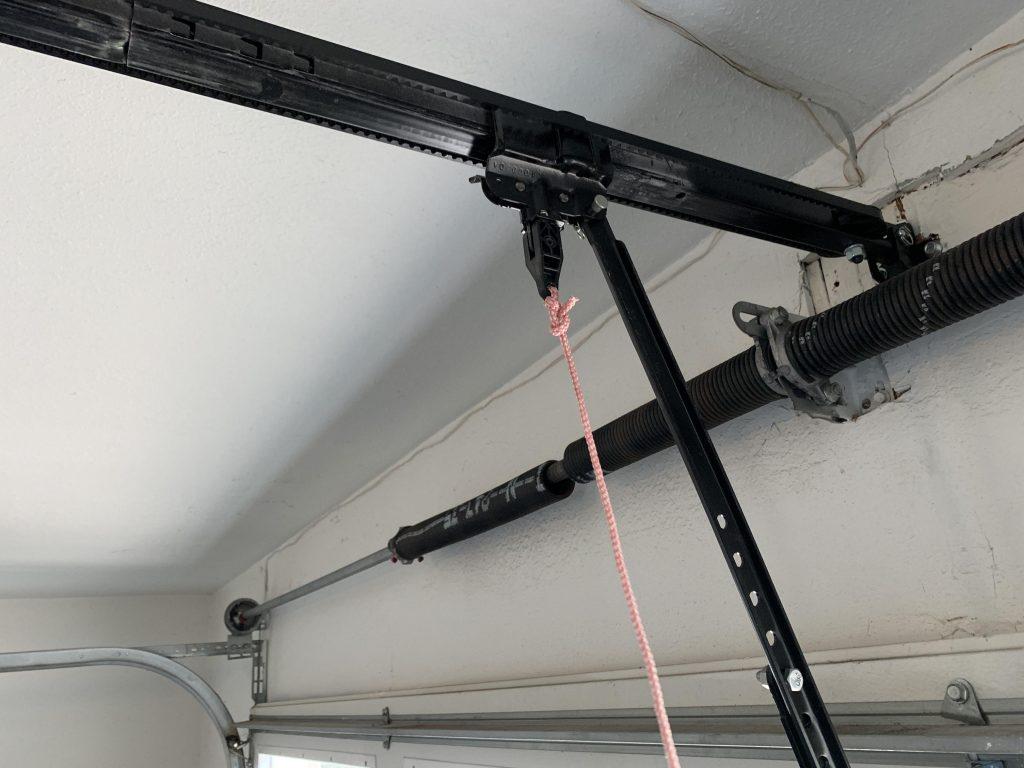Garage doors are an essential part of our daily lives, offering convenience and security for our homes. However, while we often take these mechanisms for granted, the components that make them work, such as garage door springs, can pose significant risks. In this article, we will delve into the potential dangers associated with garage door springs, the types of injuries they can cause, and the preventive measures you should take to ensure your safety.

The Function of Garage Door Springs
Crucial but Hazardous
Garage door springs serve a vital function in the opening and closing of the door. These springs counterbalance the weight of the garage door, making it easier to operate manually or with a garage door opener. There are two main types of garage door springs: torsion springs and extension springs.
- Torsion Springs: These springs are typically mounted above the garage door and wind up when the door is closed. When you open the door, they unwind, releasing stored energy to lift the door. Torsion springs are considered safer because they are usually enclosed, reducing the risk of injury.
- Extension Springs: Extension springs are located on either side of the garage door and extend when the door is closed. As the door opens, they contract. Extension springs are more dangerous because they are exposed and can cause serious injury if they break.
Types of Injuries Caused by Garage Door Springs
Understanding the Risks
The potential for injuries caused by garage door springs is a serious concern for homeowners. The injuries can vary in severity, but some of the common types include:
- Lacerations and Bruises: When a garage door spring snaps or breaks, it can release sharp metal pieces or fragments with significant force. These can cause cuts, bruises, and abrasions to anyone in proximity.
- Broken Bones: The force of a broken garage door spring can be strong enough to cause broken bones, especially if someone is standing close to the door at the time of the break.
- Crush Injuries: Garage doors are heavy, and if a spring breaks while the door is in motion, it can come crashing down with tremendous force, potentially resulting in severe crush injuries.
- Head and Face Injuries: Individuals struck by a broken garage door spring or debris may sustain head and face injuries, which can be particularly dangerous.
- Injury to Fingers and Hands: When attempting DIY repairs on garage door springs, there’s a risk that the door’s moving parts may catch or crush fingers and hands.
Preventive Measures to Ensure Safety
Minimizing the Risks
To ensure your safety and prevent garage door spring injuries, consider the following preventive measures:
- Leave Repairs to Professionals: Trained technicians with the necessary skills and tools should carry out garage door spring repairs and replacements. Avoid DIY attempts, which can be extremely risky.
- Regular Maintenance: Schedule routine maintenance with a professional to inspect and maintain your garage door and its springs. They can identify issues before they become dangerous.
- Safety Cables: If you have extension springs, consider installing safety cables. These cables run through the spring, containing it in case of a break and preventing it from flying around the garage.
- Stay Clear: Always keep your distance from garage door springs, especially when the door is in motion. Do not attempt to adjust or repair them yourself.
- Educate Family Members: Ensure that everyone in your household, including children, understands the potential dangers of garage door springs and knows to avoid them.
Conclusion
Garage door springs injury are essential for the proper function of your garage door, but they can be hazardous if not handled with care and expertise. To ensure your safety and the longevity of your garage door, rely on trained professionals for spring repairs and replacements. By taking these precautions and educating your family members about the risks, you can minimize the potential dangers associated with garage door springs and enjoy the convenience and security of your garage door without worry.



Leave a Reply